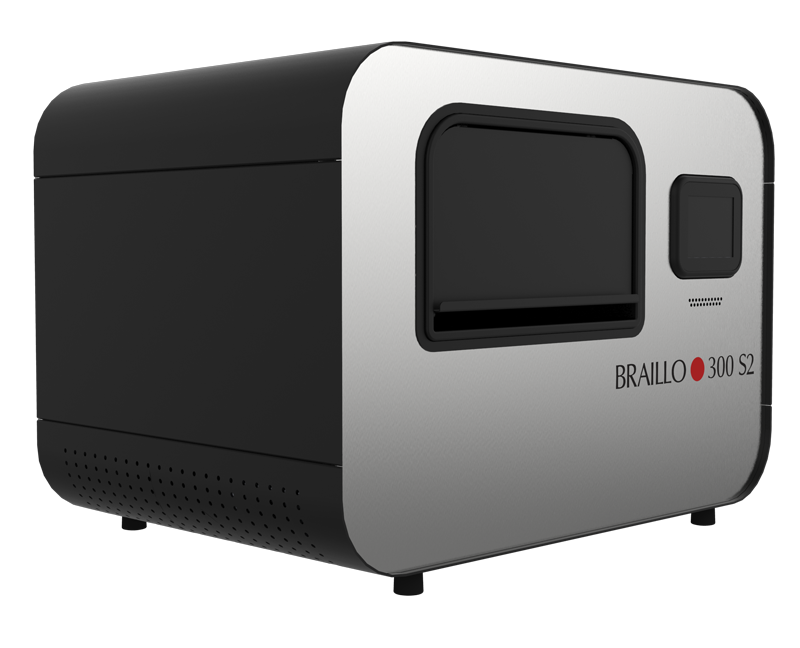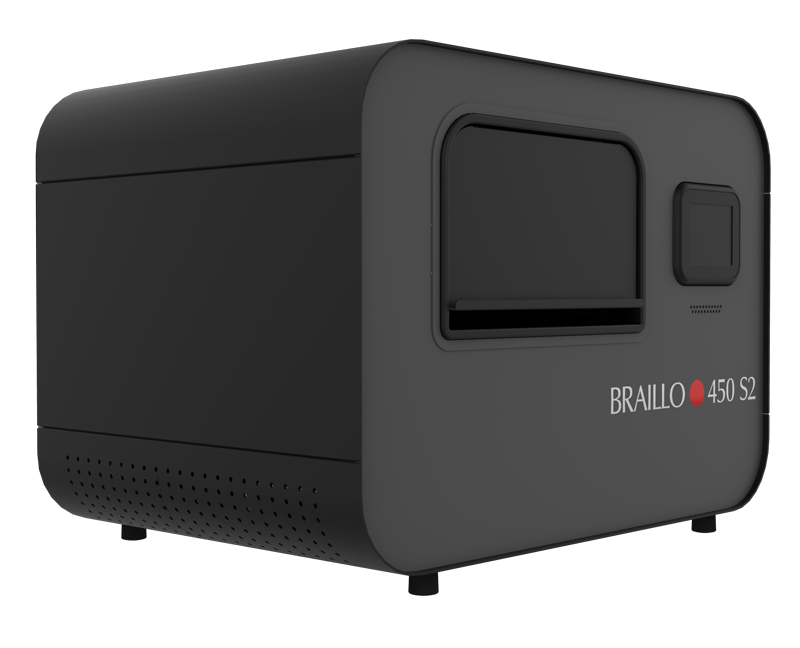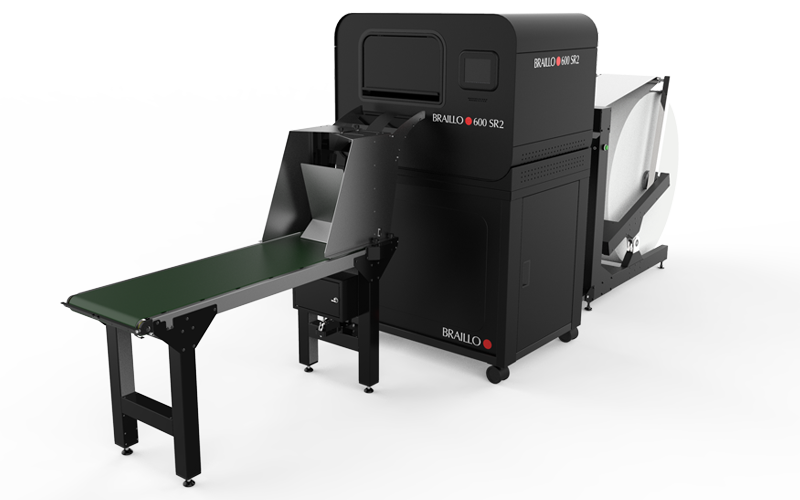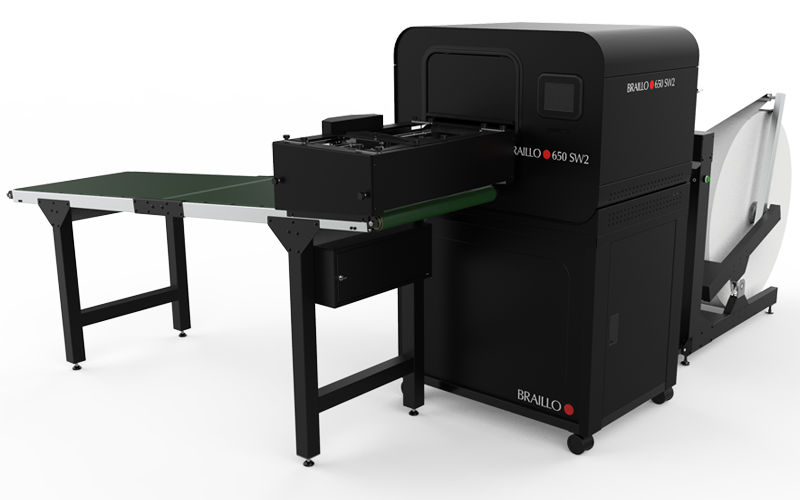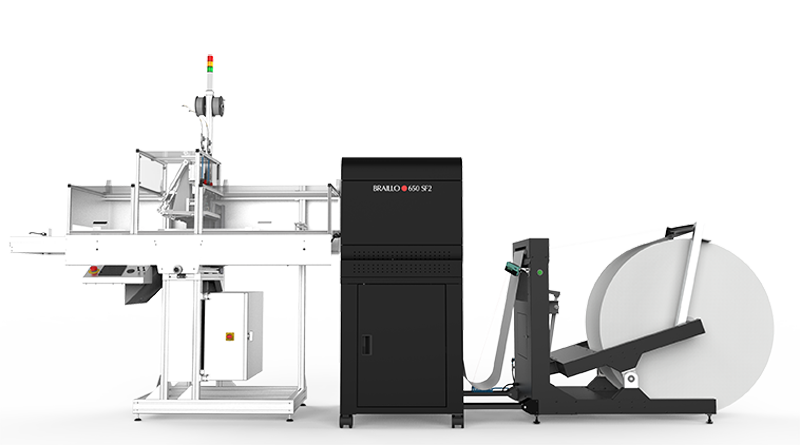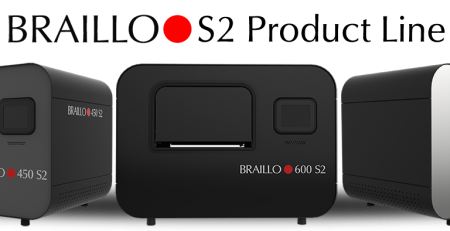What To Look For In A Braille Embosser Warranty
So you have an embosser warranty, but are you truly covered?
The definition of a warranty is “a written guarantee, issued to the purchaser of an article by its manufacturer, promising to repair or replace it if necessary within a specified period of time.” In general, a company with a strong belief in their product will have a lengthy warranty, but be aware that the warranty term length alone is not valuable. Here’s why.
How likely is your embosser to have an early failure?
Braillo has been building production grade embossers since 1980 and our embossers are notorious for lasting decades. Braillo braille embossers are used in the most important braille facilities throughout the world, because Braillo is the most trusted name in Braille production. We have a warranty that covers every defective mechanic/electrical component for up to 4 years, 10,700 hours or 20.8 million embossed pages for one simple reason – it’s highly unlikely your Braillo will ever fail. We stand behind our Braillo embossers or WE pay, not you. Our Braillo embossers have the most comprehensive, industry leading warranty available.
Braillo is the only company building true, production grade braille embossers. Others have attempted to enter the production embosser market over the years, but they have failed, leaving their customers searching for solutions. In most cases, the parts in question were fundamentally flawed, as these were personal embossers attempting to do the work of a production embosser. A long warranty can’t fix fundamental engineering failures, nor will it fix your downtime. Furthermore, what good is a warranty if the embosser won’t even last as long as the warranty period? What happens when the embosser is out of the warranty period?
Warranty Length
The length of a warranty seems to be the most important feature to customers and the longer the warranty, the more valuable it is. This is only true if the warranty truly covers all of the mechanical and electronic parts. As the manufacturer, we cover ALL of these components during the warranty period. Furthermore, if you use are specially formulated braille paper with your embosser, we add an additional 1 year of warranty, bringing the total to 4 year, 10,700 hours, 20.8 million braille pages. We offer support via phone, email, video chat, Skype and onsite. Our distributors and customers are never stuck with paying for these parts out of their own pocket, nor do we turn our back on them. We want our embossers to last decades, which makes for a happy Braillo partner and excellent service to the customer.
Our competitors do not cover all parts and unfortunately they shift the burden of paying for repairs on their embossers to their distributors, who have to eat this cost. Nor do our competitors detail their warranty terms and policies. Do you think you will receive highly professional service and repairs from a distributor who has been stuck with an invoice from a manufacturer who built an inferior embosser, or one that they promised could handle the workload?
What does the warranty actually cover?
Braillo covers all mechanical and electrical parts, and we list all of these parts in our warranty terms so it is 100% transparent and clear to you. Our competitors only cover certain components and in most cases, only a percentage of the total cost.
Who pays for the repairs?
During the warranty period, Braillo covers all defective mechanical and electrical components, period – not you and not our Braillo partners. On the rare occasion a part goes bad, we replace it – failures can happen and when they do, you are covered. We have earned our reputation as the most trusted production embosser for a reason, and we want to keep it that way.
Our competitors shift this warranty cost and repair burden onto their resellers, who are annoyed at the time and expense associated with this. They don’t have any incentive to support brand value, as the company is not theirs. Therefore, warranty repairs are a money loser to them and unfortunately, the customer is left with a non-working embosser.
Recognize the requirements of a written warranty.
If a manufacturer offers a written warranty, the warranty must comply with federal laws. These laws are meant to protect consumers and ensure that they are able to be educated purchasers. A written warranty must meet the following requirements:
- Written in plain and easily understandable language.
- Provide the name and address of the company giving the warranty.
- Detail the product or parts covered by the warranty.
- Specify whether the warranty provides replacement, repair, or a complete refund.
- Set forth the duration of the warranty, including when the warranty begins.
- Explain any things that the warranty does not cover, such as certain types of damage.
- Describe any dispute resolution procedures.
- Provide information about the consumer’s legal rights
Read the warranty before you make your purchase…and get references!
Generally, before making a large purchase, consumers will research the product to determine whether it meets their needs. Consumers should also read the warranties offered with each product that they are considering. Manufacturers must provide warranty information online for consumers to review. If there are any questions pertaining to the warranty or what is covered, ask the company or get references! Those that use Braillo embossers, or have expiremented with others, know that Braillo stands behind all of their embossers, just as others who have used competing embossers, know that they don’t.
Examine the types of repairs covered by the warranty.
The most important part of the warranty is what the warranty actually covers. When comparing different warranties, you want to determine whether the warranty only covers certain types of repairs or parts, and if there are any problems that are excluded from coverage. When evaluating a warranty’s coverage, consider the following:
Would you be required to pay for shipping? This could prove very expensive.
Are there any conditions or limitations on the warranty? Warranties may be void if you fail to use the product as intended or if you use aftermarket parts.
Consider the reputation of the company offering the warranty
You should also look at who is offering the warranty and evaluate whether the company has a good reputation. Has the company been in business for a long time? Does the company have a history of providing quality products? Is the company constantly shifting distributors in order to escape claims? Is the company introducing new products all the time in order to avoid fixing issues with the old?
You can easily search for the company’s name online and look for reviews of its warranty service. If you see repeated complaints about the company, you may want to consider choosing a product with a different warranty service. You can check whether any complaints have been filed against the manufacturer or other business offering the warranty at the Better Business Bureau (BBB), or similar agency in your country.

